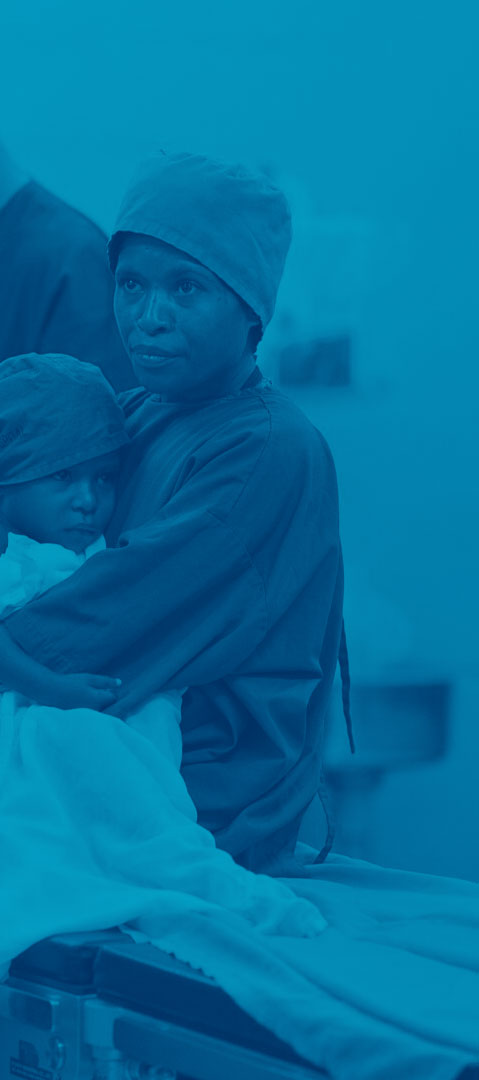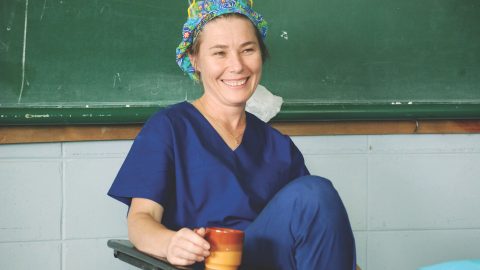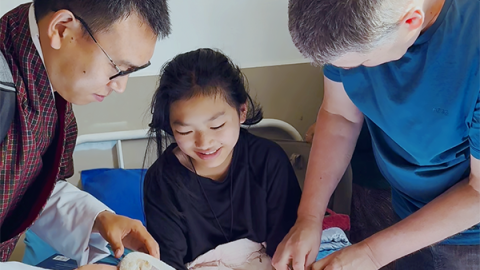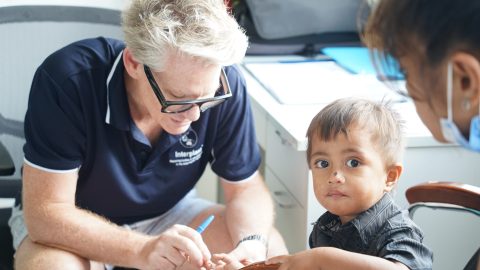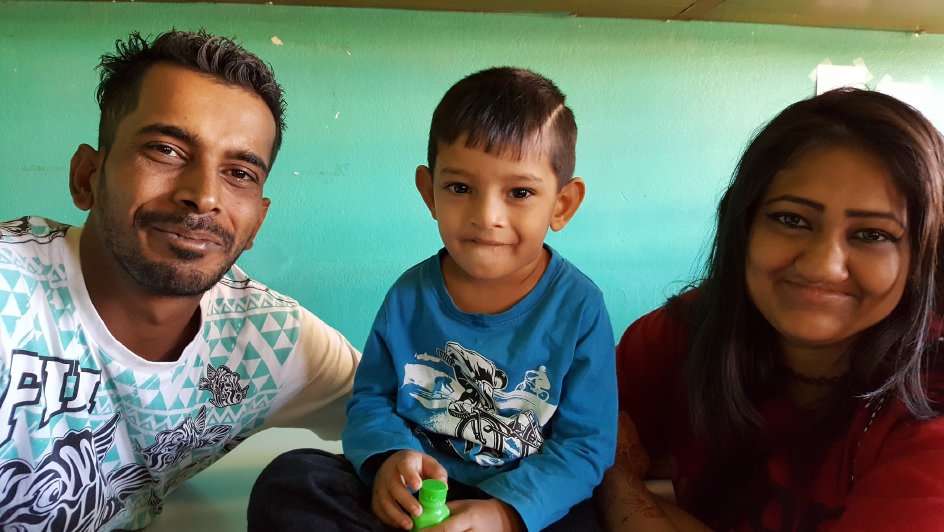
Three-year-old Abraar was born with a cleft lip and palate. In 2014, when Abraar was six months old, he was referred to Interplast by the Ruel Foundation, and his cleft lip was repaired by our visiting surgical team in Suva, Fiji.
It is common practice to initially carry out a cleft lip repair and wait for a child to grow older before carrying out a palate repair, which is a more complex procedure.
While the repaired lip significantly improved Abraar’s appearance, the impact of his unrepaired cleft palate was challenging for Abraar and his family. He was unable to form the correct sounds of speech and he has had constant ear and eye infections. This is often the plight of children born with a cleft lip and palate.
Abraar’s family said that when they were eating meat, Abraar would become upset, as all he could have was the juice or gravy. He could eat soft food but some came out of his nose due to the gap in his palate.
Abraar’s father is a carpenter in Lautoka and his mother is a stay-at-home mum. Before the surgery on his palate, Abraar’s parents said their dream was that he would one day be able to eat and talk like other children. His mother used a small cup to feed him when he was small, giving him little sips frequently, then at two months he managed to keep some milk down using a teat and bottle. “He tells us with his fingers when he wants something,” she said. “He makes sounds that we can’t understand.”
Abraar’s father hopes his son will become a doctor so he can help others like himself. He wanted him to have the operation so “his speech is good because it’s important for everyone to understand what he’s saying”.
Abraar’s mother knows first-hand the challenges Abraar would face if he did not get treatment as she was also born with a cleft lip and palate, but has only had the lip repaired.
She said that when she was born “my nose and mouth were together and my lips had two sides open”. In fact, she didn’t have much of a nose at all. As a baby, her cleft lip was sutured together at Colonial War Memorial Hospital in Suva and a small part of a nose was formed. Her speech is difficult to understand. She left school when she was 13 because she was missing a lot of classes due to ear problems.
Abraar’s cleft palate was repaired by an Interplast team visiting Lautoka in mid-2017. His mother arrived on the clinic day with the hope that both she and Abraar would have their cleft palates fixed. Unfortunately, only Abraar’s surgery could be done, as she needed to be in good health to look after her son post-surgery. She had waited 24 years for this moment. However, the good news is that she will be on the list for the next visiting Interplast team.
After the operation to repair Abraar’s palate, Interplast volunteer Dr Sarah Usmar said: “Abraar’s surgery means he will be able to speak clearly, have less ear infections and food and fluid won’t come out of his nose, so there’s less social embarrassment.” Abraar needed to eat very soft food for two weeks and keep his fingers out of his mouth to avoid puncturing the healing tissue. Now he will be happily chewing his meat.
